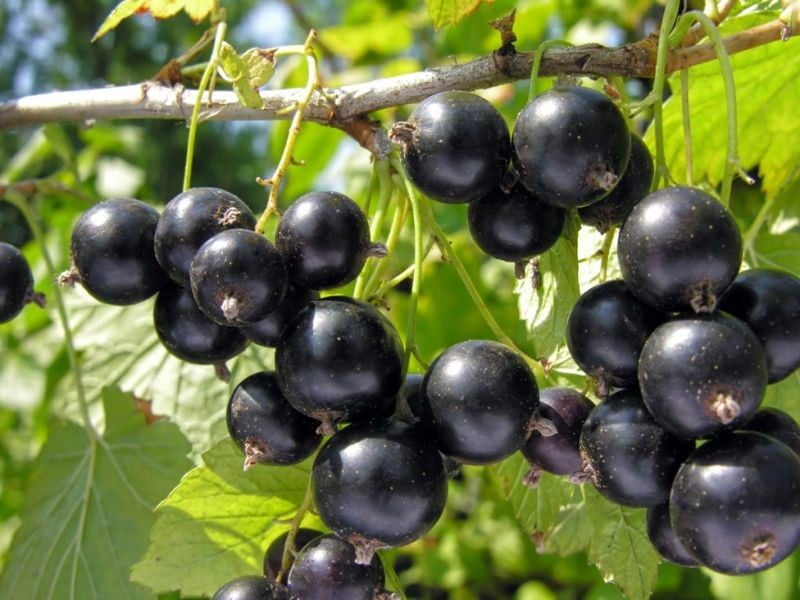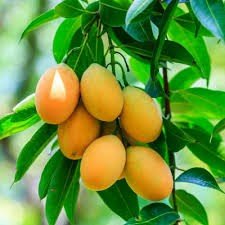Blackcurrant is free of pesticides and grows in an unpolluted area with intense sunlight, which makes it naturally high in phenolic antioxidants.
There is convincing epidemiologic evidence showing that fruits and vegetables are in general beneficial to health and contribute to the prevention of degenerative diseases. Oxidized metabolites can cause damage to DNA, protein and lipid and this damage contributes to aging and degenerative diseases including cancer, cardiovascular diseases, immune-system decline, brain dysfunction, and cataracts. Substantial research has been carried out on how blackcurrants can protect against oxidative damage and thus contribute to preventing aging and disease.
Black currants Juice and Extracts:
Inhibition of CYP1A1. CYP1A1, an isozyme of cytochrome P450, is responsible for the metabolic activation of many carcinogens. Blackcurrants contain inhibitors of the catalytic activity of the carcinogen-activating enzyme CYP1A1. Work by Kansanen et al. , proves that blackcurrants are more active than cloudberry, strawberry, red raspberry, bilberry and lingonberry.
Cardiovascular diseases
Vasorelaxation. In conditions such as hypertension, diabetes and atherosclerosis, endothelium-dependent vasorelaxation is reduced. One of the mechanisms accounting for the dysfunction of the endothelium is a decreased release of nitric oxide (NO). The development of vasodilator compounds with the ability to restore the levels of NO in the vascular system could potentially contribute to the treatment of these cardiovascular diseases. Blackcurrant concentrate enhances synthesis of NO, which subsequently induces the endothelium-dependent vasorelaxation via the H1-receptors on the endothelium.
Brain dysfunction
Inhibition of monoamine oxidase. Dopamine is an essential brain neurotransmitter and reduced levels of dopamine in the brain is associated with reduced cerebral function.
Dopamine is degraded by monoamine oxidases, and therapies of neurodegenerative diseases could target inhibition of these monoamine oxidases. The ability of blackcurrants to inhibit monoamine oxidases has been demonstrated, and experiments have been carried out on mice, rats and humans to demonstrate the resultant stimulating and cerebro-activating effect.
Eye care
Oral intake of blackcurrant concentrate has significant and beneficial effects on visual functions, reducing the dark adaptation threshold, and preventing transient refractive alteration and subjective symptoms of fatigue of the eye during visual display work. In the last few decades, computers have rapidly and steadily become a necessary tool of modern life and many people are suffering from computer-related eye problems, particularly eye strain which may cause mental and eye dysfunction. Long-term computer use has also contributed to the rise of modern lifestyle related diseases, often exacerbated by stress. Blackcurrant anthocyanins work wonders by treating and alleviating stress, cataracts, eye strain, and preventing aging, all of which are made worse by long-term computer use. The outstanding effects of blackcurrant polyphenols on eye diseases and eye strain in comparison with other fruits and berries have been proven by in vitro and animal experiments, and clinical tests conducted by research institutions and pharmaceutical companies.
Infections
Blackcurrant juice alleviates urinary tract infections and associated problems. Blackcurrants act against influenza A and B viruses, , and herpes simplex viruses 1 and 2. An interaction between the combining site on the viral envelope and constituents of the crude blackcurrant extract is speculated. It is also speculated that viral release from cells is prevented by constituents of the crude extract attaching to the cell membranes. The extract maintained its antiviral activity even after treatment at 121°C for 20 minutes, indicating tremendous potential in nutraceutical food processing applications. In particular, anthocyanins are shown to play a role in this antiviral activity, however the direct inactivation of viruses by the crude extract appear to be enhanced by other important components of blackcurrants.
Kidney stones
Blackcurrant juice increases the urinary pH and the excretion of citric acid and oxalic acid. This indicates that blackcurrant juice can support the treatment and metaphylaxis of uric acid stone disease because of its alkalising effect.
Increased life-span
A blackcurrant juice extract has significantly prolonged the life span of aging female mice.
Antimutagenic Activity of Blackcurrant
Bioflavonoid compounds found in blackcurrants (Flavonoids, Flavones, & Flavonols) are useful in a number of disorders. They improve the biochemical properties of blood vessels and they help treat different types of vascular disorders, such as capillary fragility, peripheral venous insufficiency and microangiopathy of the retina.
A standardized mixture of Bioflavonoids has been produced from blackcurrants. This extract powder has been used in several impor¬tant studies, which highlight its anti-mutagenic and anti-oxidant properties. (A mutagen is a substance or preparation capable of inducing or acceler¬ating mutation.)
Blackcurrant seeds and oil:
Cardiovascular diseases
Hypertension is associated with alterations in the metabolism of ω-6 polyunsaturated fatty acids (PUFA) in tissues. Compositional changes in tissue fatty acids may affect cellular properties such as ion permeability and receptor interactions important to blood pressure regulation. Evidence suggests that the ω-6 PUFA, γ-linolenic acid (GLA), is a potent blood pressure lowering nutrient. Alterations in the fatty acid profiles of hepatic and vascular tissue induced by GLA-enriched blackcurrant oil may be responsible for the favourable blood pressure lowering effect of GLA. Blackcurrant oil allows better control of blood pressure in situations of stress.
Cardiac arrhythmia frequently develops as a consequence of reduced blood flow to the heart. In a rat model of cardiac ischaemia, the susceptibility to develop sustained ventricular fibrillation is increased with the age of the animal, but this increased susceptibility can be diminished by inclusion of polyunsaturated fatty acids in the diet. There is an enhanced benefit of blackcurrant seed oil over evening primrose oil which may be caused by a combination of factors including higher GLA levels, and higher
Immune system decline
The age-associated increase in prostaglandin E2 production contributes to the decline in T cell-mediated function with age. Blackcurrant seed oil, rich in γ-linolenic and α-linolenic acids, has been shown to modulate membrane lipid composition and eicosanoid production. Blackcurrant seed oil has a moderate immune-enhancing effect attributable to its ability to reduce prostaglandin E2 production. In addition, blackcurrant seed oil also contains a small amount of stearidonic acid. The composition of blackcurrant seed oil reflects the recommended optimal dietary intake of ω-3 and ω-6 fatty acids, that is, it has a ratio of ω-3 to ω-6 fatty acids of 1 to 4 or 5. Stearidonic acid has been reported to inhibit platelet aggregation and arachidonate 5-lipoxygenase activity, suggesting that it might have antithrombotic and anti-inflammatory properties. Please visit www.blackcurrants.co.nz.
Several reports have indicated that γ-linolenic acid has anti-inflammatory and immunomodulating effects. Lower γ-linolenic acid concentrations have been reported in patients with inflammatory diseases, whereas administration of γ-linolenic acid has been shown to elevate tissue γ-linolenic acid concentrations and improve some clinical outcomes of rheumatoid arthritis or experimentally induced arthritis in an animal model.
Inflammatory diseases
Treatment with blackcurrant seed oil resulted in reduced signs and symptoms of rheumatoid arthritis in patients. Patients given a placebo showed no change in disease. No patients withdrew because of adverse effects.
A significant improvement in morning stiffness was noted in rheumatoid arthritis patients receiving blackcurrant oil. It was observed that the production of cytokines and prostaglandin was markedly altered in those subjects given blackcurrant oil.
This suggests that the beneficial effects of polyunsaturated fatty acids in inflammatory diseases such as rheumatoid arthritis may be due to a reduction in the secretion of inflammatory cytokines via redirection of the eicosanoid metabolism.
Blackcurrant leaves
An infusion of blackcurrant leaves is traditionally used in Europe for the treatment of rheumatic disease. Diuretic and anti-inflammatory properties may be the basis of this treatment.











Reviews (0)
There are no reviews yet.